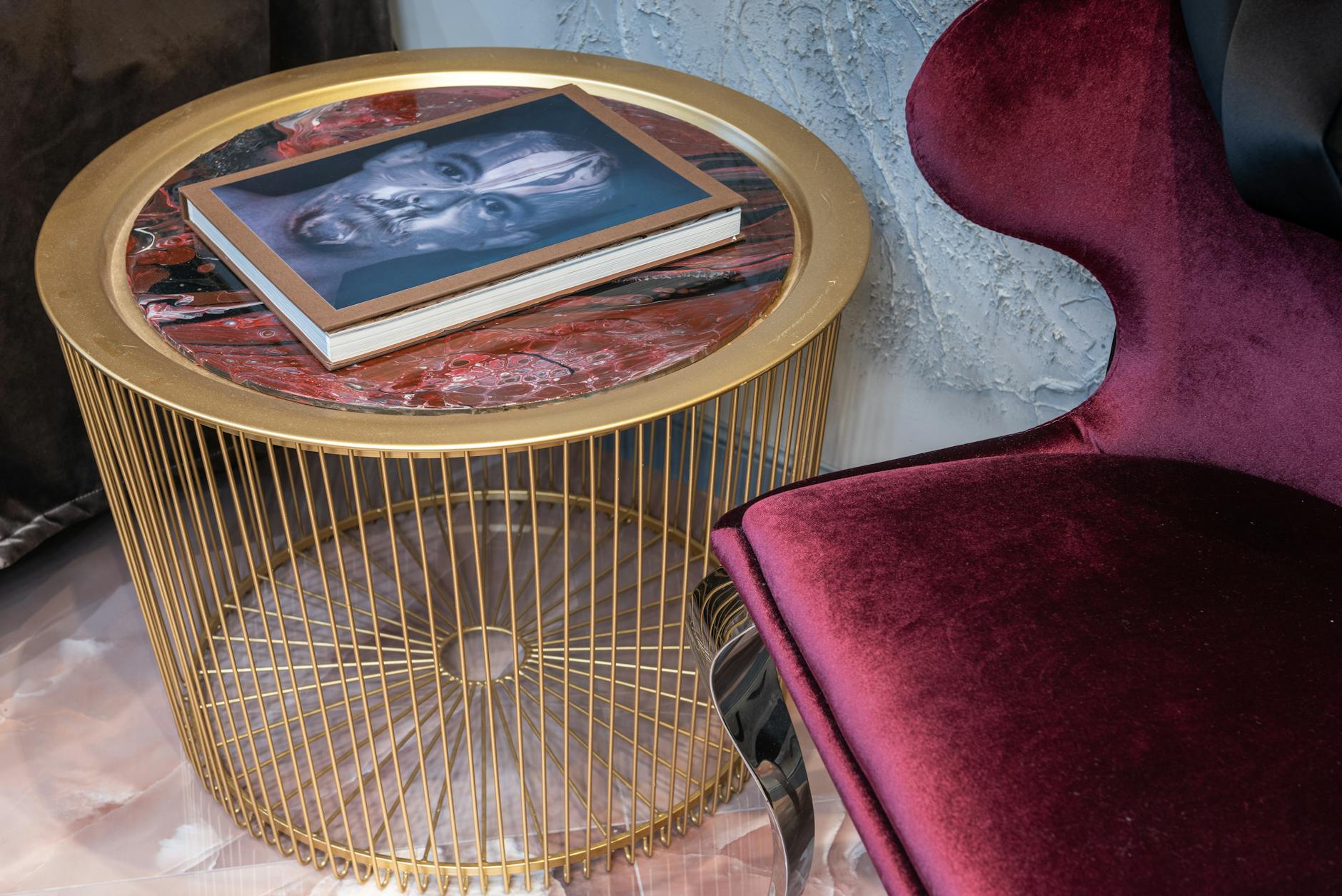The Diderot Effect: What It Is And How To Avoid It


We’re fortunate to earn money when you click on links to products or services we already know and love. This helps support the blog and allows us to continue to release free content. Read our full disclosure here.
Picture this: Your life is going well, all of your needs are met, and you can afford the staples you need to survive and enjoy your time.
Then one day, someone gives you a gorgeous red nightgown.
It sounds crazy, but hear me out.
You love your new nightgown. It’s soft. It’s beautiful. You wear it night after night, until one day… You notice how ratty the armchair in your living room is. You want something soft to sit in while wearing your luxurious nightgown, so you replace it.
But the new chair doesn’t quite match the ugly old table… So you replace that, too. And the curtains as well, obviously.
Soon something you got for free has lead to thousands of dollars in purchases.
What happened?
This is called the Diderot Effect, and it’s a sneaky thing. The official definition on Wikipedia says this:
“[T]he introduction of a new possession that is deviant from the consumer’s current complementary goods can result in a process of spiraling consumption.”
…what?
Essentially, a new acquisition or purchase can easily lead to more expenses, especially if the new thing doesn’t fit in with your existing lifestyle. You may not be buying spurious red nightgowns, but imagine other items of luxury that have come into your life – even as gifts!
A few lovely hand-me-downs might make you rethink the rest of your wardrobe. A new pair of shoes might encourage you to buy that purse you’ve been eyeing.
Maybe you needed to buy a new wrench to tackle a problem in your home – and a toolbox to go with it wouldn’t hurt, right? Well, now that you have a toolbox, you don’t have a good reason not to buy that new drill.
Sometimes purchases themselves lead directly to more expenses. A car is a great example. Even a great car requires occasional maintenance, which is not free. Throw in gas, insurance, registration… you get the idea.
What did Diderot do?
Simply put, he wound up in a mountain of debt and threw the nightgown into a lake in despair. I don’t recommend it.
He even wrote an essay about it, hilariously titled Regrets for my Old Dressing Gown, or A warning to those who have more taste than fortune:
“I don’t cry, I don’t sigh, but every moment I say: Cursed be he who invented the art of putting a price on common material by tinting it scarlet. Cursed be the precious garment that I revere. Where is my old, my humble, my comfortable rag of common cloth?"
- Denis Diderot, 1769
Yikes.
What should you do?
Don’t be like Diderot. Reflect on your purchases and ask yourself why you need this new item now when you didn’t need it before.
You probably won’t be able to pinpoint the infamous nightgown in your life right away, but you may be able to prevent the new chair or table. And at that point, enjoy the inharmonious nature of your purchases.
It’s okay to have nice things, but sometimes they come with a hidden pricetag. Here are some quick strategies to keep from snowballing.
1. Question the urge to start over.
Capsule wardrobes are a great example of this.
You’re unhappy with your current collection of clothing – maybe even because you have too much! A capsule wardrobe seems like a simple way to reboot your style.
Often people assume this means they should go out and buy 20 new pieces of clothing to create their new wardrobe, but the alternative is obvious: Pick and choose items from your existing collection and only supplement with new pieces when necessary.
Instead of buying 20 new items, you may not need to buy anything.
The issue is, we want to buy 20 new items. It’s a lot less fun to make a capsule wardrobe out of items we already own. But that’s exactly the point: The desire to start over is often driven by impulse. Making do with what you already have is boring, but usually smarter.
2. Practice mindful spending.
It’s easy to buy things and rationalize later. Instead try to stay present and mindful of purchases – especially new ones.
- Don’t replace items until they actually need to be replaced.
- Ask yourself what benefit you gain by purchasing.
- Consider what else that money could go toward – a vacation, school, higher quality food?
3. Cultivate gratitude.
Diderot realized too late that he should have been content with his existing possessions.
If he had cultivated more gratitude for his current situation, he might not have felt compelled to replace everything he owned. Happiness isn’t always getting what you want – it’s wanting what you’ve got.
Related Posts

3 Types Of Lifestyle Inflation (And How To Beat Them)

13 Financial Self-Care Tasks

